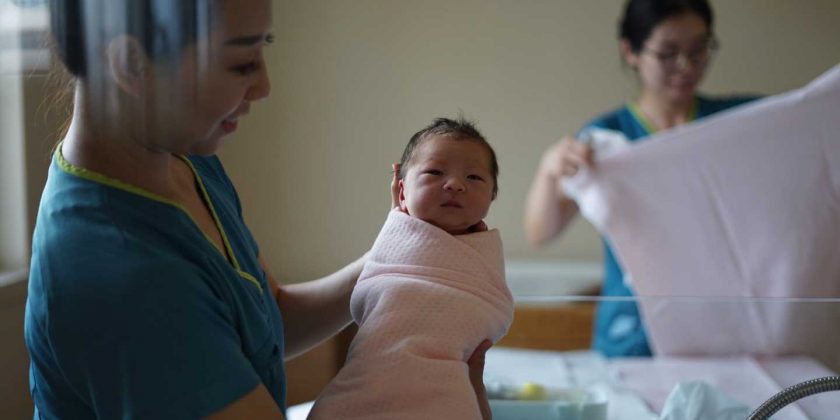
La Trobe University researchers surveyed 1,016 midwives and 38 managers—representing 20% of the state’s midwifery workforce and more than 50% of managers across the state.
The study revealed 27% of midwives plan to leave the profession in the next five years, while 40% “regularly” think of leaving the profession.
Report co-author Professor Della Forster from La Trobe University and the Royal Women’s Hospital said that while midwives reported experiencing professional satisfaction, the stresses of the job were driving many away.
“73% of midwives feel personally burnt out, 67% are burnt out due to work, and many want to leave the profession because they feel exhausted and disillusioned,” Professor Forster said.
“A high number also reported workplace safety issues including bullying, violence and threats, which is concerning.”
Lead author Robyn Matthews, Research Officer at La Trobe University, said proactive initiatives were needed to retain midwives long term.
“We did find that many midwives had high levels of job satisfaction, indicating that with proactive initiatives—such as better continuity of care and more flexible roles—service providers may be able to retain this vital workforce,” Ms. Matthews said.
Other key findings include:
- Most midwives think the skill mix on an average shift is unsafe, with the workforce predominantly made up of early career midwives with less than ten years’ experience, and a significant deficit of midwives with 11-25 years’ experience post-qualification
- 48% have experienced occupational violence, and 26% have experienced workplace bullying
- Almost 50% said the pandemic had a negative effect on their experience as a midwife; 25% said it made them more likely to leave the profession
- 28% feel their concerns are taken seriously by their managers, and 20% think their workplace has a positive culture
- 75% of maternity services have current midwifery deficits; a total of 200 midwives were needed across Victoria at the time of the study
Divisional Director of Women’s and Children’s Services at Northern Health, Nicole Carlon, said the survey highlighted the need for service providers to use innovative strategies to better support midwives.
“This research confirms what many in the profession already know—that midwives are under increasing pressure due to workforce shortages and a lack of experienced midwives,” Ms. Carlon said.
“It will take creative thinking, investment and strong leadership if we want to keep providing the high quality of care that women and families need.”
Northern Health is taking part in the Magnolia trial with La Trobe researchers to explore whether offering continuity of care from a “known” midwife to vulnerable women reduces the risk of premature births and increases midwife satisfaction. The service is also trialing flexible support roles, and roles which will provide flexible work areas for midwives unable to work traditional shifts.
The FUCHSIA study (Future Proofing the Midwifery Workforce in Victoria: a Statewide Cross-sectional Survey Exploring Health, Wellbeing and Sustainability) was an online population-based cross-sectional study conducted in Victoria between March and October 2021.
Source: Read Full Article
